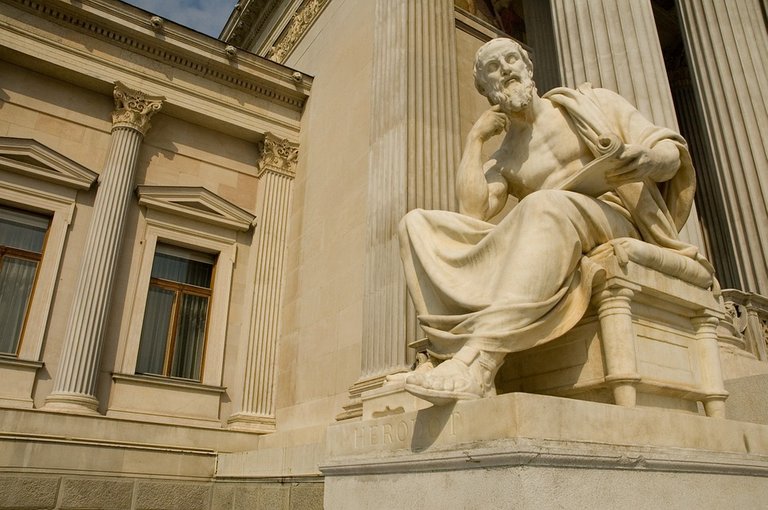Between thought and action, or between head and hand, there is a constant dialogue. This dialogue has taken many forms throughout human history. Sometimes it took the form of mutual hostility, or an elevation of thought over action, or collaboration and cooperation between the human mind and his hands. The story of the relationship between thought and the machine, and the philosopher’s position on technology, was a clear reflection of the social relations prevailing in every era. In different eras, I will try, in a series of articles, to give a general historical view of this problem, as well as to address some of its aspects that affect modern man.
I believe that the reader will have benefited from these articles in the way I hope if he does not view them as pure philosophical articles, and if he contemplates them as a summary of problems that every human society must go through when it is faced for the first time with the problem of workmanship or manufacturing, and the power of machines begins In it, it performs its work alongside human power, and the inevitable collision occurs between the mind in its free movement and the machine in its strict order.
A look from the wise
Thales was the "Father of Philosophy" who lived in the sixth century BC; He was a theoretical thinker and a practical inventor at the same time; Historians of thought attributed to him the first integrated theory in which the human mind tried to explain the entire universe through a single rationally convincing principle, not through myth or legend, but at the same time he was of a scientific and practical mentality of the first order. » To allow the armies of Cressius to cross it, and many discoveries in astronomy and navigation have been attributed to him, and it is not our concern here to enumerate the inventions and discoveries attributed to the person of Thales.
What is important in the matter is that the first philosopher to be mentioned in history was a theoretical and practical figure at the same time, and he was not the lonely man who contemplates the sky, his walk falters and falls into the mud as depicted in the famous story, in other words, the beginning of the emergence of philosophy was linked to the combination of theoretical thought and applied science together Rather, it may be said that it was the interest in practical matters that inspired the philosophers of this period their theoretical views.
So everything suggested that intellectual progress and technological progress would go hand in hand in the classical Greek era, and all the means were facilitating for that; Greek science has begun to flourish, and the secrets of mathematics are beginning to be revealed to the Greek mind, and contacts with ancient civilizations are uninterrupted, and the political and social climate undoubtedly helps this, moreover, during that same period the foundations of the atomic theory were laid on the one hand.
Let the poor eat bread
There were two ideas, the first depicting the entire universe as a huge machine, and the second, looking at the human body itself as a complex machine, yet this expected development did not happen, and Greek science remained theoretical and not applied, and the Greeks did not know the “machine” in its correct meaning. And if they knew a simple group of mechanical devices, they were a source of entertainment and recreation, and they did not have a serious job in their lives.
Those who are skeptical about the value of industrialization in our time point to the material and moral damage caused by mechanization, especially in wars. Indeed, it seems that the ancient Greeks began to question these questions, especially with regard to the machines used in war. If the machine replaces the human hand. In fighting the enemy (as in the case of the catapult, for example), what is the value of courage, then? Moreover, the Greeks recognized the danger of unemployment that was generated by the expansion of the use of machines.
It was narrated from one of the emperors that an engineer offered him a device that would enable him to move huge columns at little expense to the top of the Capitol. The emperor refused to use the device, thanking him, and said to its inventor:
“Let the poor eat bread!”
Such reasons, then, existed, but were not so clearly perceived by the Greeks that they could in any way be taken as an explanation for the slow development of mechanical inventions.







